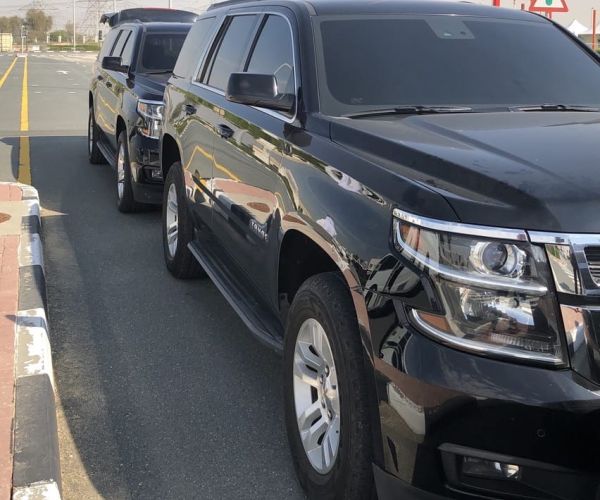Advance Your Career with Our Close Protection Courses

What is Close Protection
CP is a security programme designed around the lifestyle, family, and environment of the individual being protected. Duties include, but are not limited to:
- Identifying actual and potential vulnerabilities
- Careful analysis and planning
- The implementation of a well-conceived plan
- Advanced security arrangements
- Awareness to provide an overall safe and secure environment.
Close protection services may be provided in a variety of settings, such as private residences, public events, or corporate offices. The level of protection provided depends on the client's specific needs and the potential risks involved.
How to become a Close Protection Officer
Become a Close Protection Officer (CPO) in the private security industry by taking the QNUK Level 3 Certificate for Close Protection Operatives (RQF) course offered by HZL. This 18-day level 3 close protection course covers all the competencies needed to handle any situation as a CPO, and provides valuable theoretical and practical training. By successfully completing this course, you can apply for an SIA licence to work as a CPO and progress to further qualifications. Don't miss out on this opportunity to advance your career in private security - book now!

Possible Close Protection Jobs
Who would hire someone with Close Protection Training
- High-net-worth individuals (HNWIs) and their families
- Celebrities and entertainers
- Diplomats and foreign dignitaries
- Corporate executives and CEOs
- Journalists and media personnel covering conflict zones
- Footballers and sports personalities
- Individuals involved in legal proceedings
- Individuals travelling to high-risk or unstable regions
- Politicians and government officials.
Residential Security Team
They secure the place where the person they're protecting lives. They need to be alert, patient, and ready to handle emergencies.
Personal Escort Section
They provide close protection for the person they're guarding. They react quickly to any incidents and help create a safe environment by staying aware of their surroundings.
Personal Protection Officer (PPO) / Bodyguard (BG)
They're part of the close protection team and have a close relationship with the person they're protecting. They blend in with the environment and can anticipate the person's needs while assessing any changes in the surroundings.
Security Advance Party
They make sure everything is ready for the person's arrival and are a critical part of the security team's mission. They can adapt the plan and communicate with the bodyguards to ensure the person's safety and convenience.
Planner / Logistics / Ops Team
They create plans that assess risks and coordinate with the rest of the team to make sure everything goes smoothly. They also monitor online activity to anticipate any potential threats.
Do you need a top-up for your Close Protection status
This course is essential for individuals who want to renew their Close Protection licence and stay up-to-date with the new licence-linked qualifications requirements. The QNUK Level 2 Award for Close Protection Operatives in the Private Security Industry (Top Up) covers principles of terror threat awareness, working as a Door Supervisor for Close Protection Operatives, and application of physical intervention skills. It's delivered over 3-5 days and costs £360 (inc VAT). Sign up now to secure your spot!

Tips and advice for people interested in pursuing a career in close protection
Starting in a Residential Security Team (RST) role?
It's important to understand the difference in roles within the CP industry and expect to start in a Residential Security Team (RST) role. It takes time to understand the rhythm of a Principal, and a new CP operative would find it challenging to take on the Bodyguard (BG) role early on. There are stepping stones in this career path, and it's important to learn the ropes.
Maximise Waiting Time
Security work involves hours of waiting, so it's important to maximise this time. Effective operatives are constantly planning, second guessing, and anticipating. Check your equipment, communications, team, routes, and the atmosphere of the environment you're operating in.
Reconnaissance is Invaluable
Any time spent reconnaissance is well spent. Use your team to help with this if possible. Good reconnaissance plans are invaluable. When routes and plans suffer setbacks, it's important to think swiftly and find suitable alternatives with minimum fuss and disruption to the Principal.
Build your profile
Employers look at non-military and non-policing backgrounds too. Building your profile within the sector is important, regardless of your previous career experience. Demonstrating patience, sound administration skills, the ability to work hard, be a team player, demonstrate integrity, and anticipate the Principal and team's needs will play a far greater role in gaining roles than what your cap badge used to be.
Identify your market and niche
Identify which market suits your skillset, experience, and background. Decide on your niche or unique selling point, which may be an additional skill that will make you an asset to a CP team or to the client.
Network
Building a good network of people in the industry, including potential employers and clients, is essential for success in the close protection industry. Maintaining relationships with people you have worked with in the past and connecting with new people through networking events, social media, and other channels can help you stay up-to-date on job opportunities and industry developments.
Learn your trade craft
To gain experience and improve your skills, take on jobs that may not pay well but offer valuable learning opportunities. Focus on building a diverse set of experiences that can help you adapt to various environments and situations. Continuously learning and staying informed about industry developments can help you stay relevant and in demand.
Be true to your word
Building a reputation for integrity and reliability is crucial in the close protection industry. Under-promise and over-deliver to gain the trust of clients and colleagues. Always meet or exceed expectations and never make commitments you cannot keep. This can help you build a loyal client base and develop long-term relationships.
Always be prepared
Thorough planning is essential in the close protection industry. Whether it's conducting detailed threat assessments, developing contingency plans, or preparing for emergencies, being prepared can help you effectively manage risk and keep your clients safe. Continuously assessing and anticipating potential risks and developing plans to mitigate them can help you stay ahead of potential threats.
Your last job matters
In the close protection industry, every job matters, and your reputation is only as good as your last job. Consistently delivering high-quality work can help you build a positive reputation and gain repeat business. On the other hand, a poor job performance can damage your reputation and make it difficult to secure future work. Always strive to do your best and leave a positive impression.
Frequently Asked Questions
Although some organisations and clients prefer to have ex police or military as part of a close protection team, this is not always the case as it mostly depends on the task requirement.
No, very often not. On many occasions you will be mixing with high profile or famous people, however most of your time will be spent planning, standing outside hotel room doors, waiting around, and spending time away from home. You may work in a multimillion-pound world, but it is important to remember that it is their world and not yours - you simply work in it.
In the UK you will need to hold a valid SIA licence to work in close protection. To obtain a licence you will need to complete a recognised course and pass a criminal background check. The licence demonstrates that you meet the legal requirement for working in the security industry.
If you gained your licence before Oct 2022 you will require to complete the Top Up / Upskill course before you can renew your licence. You will only be required to do this once.